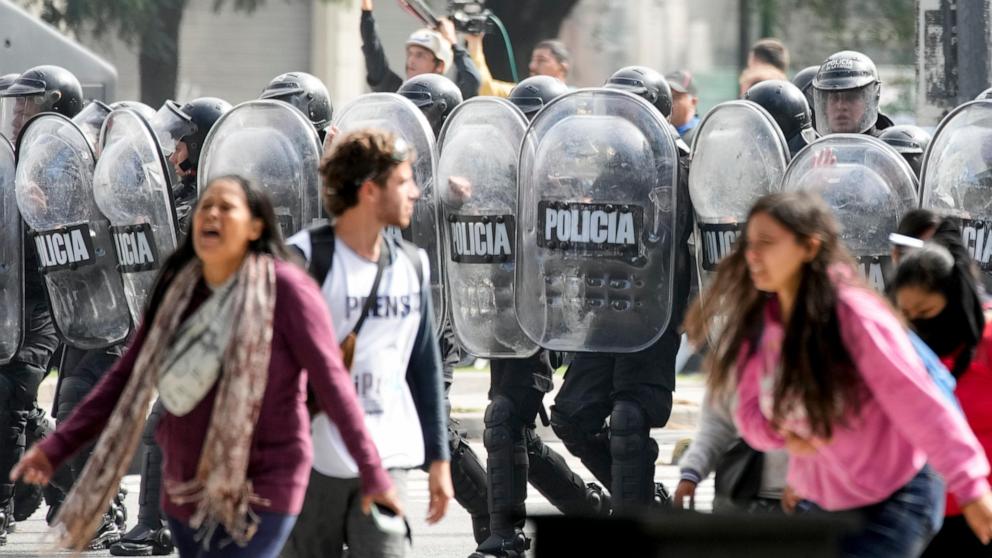Protesters who had blocked the capital's main thoroughfares were forcibly dispersed and eight of them detained as a confrontation intensified between Argentine authorities and anti-government demonstrators enraged by President Javier Millei's drastic cuts to state spending. It was done.
BUENOS AIRES, Argentina — Conflict between Argentine authorities and anti-government demonstrators enraged by President Javier Millei's spending cuts intensified on Wednesday, with demonstrators blocking the capital's main boulevards forcibly dispersed and the movement slowed. Eight participants were arrested.
In an unusual move, riot police deployed powerful water cannons, drenching protesters. Demanding more food for soup kitchens, Argentines threw sticks and stones, set trash cans on fire and paralyzed Buenos Aires' main streets, ignoring a new law banning roadblocks.
Strikes and protests have gripped the country in recent weeks as Argentines have taken to the streets to vent their anger and despair as they struggle to cope with Prime Minister Millei's dire austerity measures amid soaring inflation. Bus drivers are planning a strike on Thursday.
Prime Minister Millais' right-wing government has burnished a tough-on-crime image, passing new measures in December giving security forces the power to arrest and disperse protesters who block roads. Ms Millay also threatened to withdraw welfare from people accused of obstructing traffic. Critics, including a team of UN human rights experts, have called the restrictions a violation of civil liberties.
“We are finishing the liberation of Julio de 9. We are restoring order in the center of Buenos Aires,” Buenos Aires Security Minister Waldo Wolf said Wednesday, referring to the traffic-choked thoroughfare.
Wolff told local media that eight protesters were charged with criminal damage to property.
Security Minister Patricia Bullrich wrote “law and order” on social media platform
Protesters gathered at the Human Capital Ministry, which faces the challenge of overseeing Argentina's social services. As part of a sweeping effort to stabilize Argentina's long-troubled economy, Millay announced government spending, including laying off civil servants, cutting energy and transportation subsidies, canceling public works projects, and reducing transfers to rural areas. was significantly reduced.
As the annual inflation rate exceeds 276% and Argentines are falling into poverty, more and more people are flocking to soup kitchens run by left-wing political parties and social organizations to overcome poverty. But Millay's austerity measures have also hurt food pantries, known locally as “comedores,” which have stopped food deliveries and cut funding.
“All the government is proposing to its people is planned misery,” the trade unions leading the protests said in a statement.


